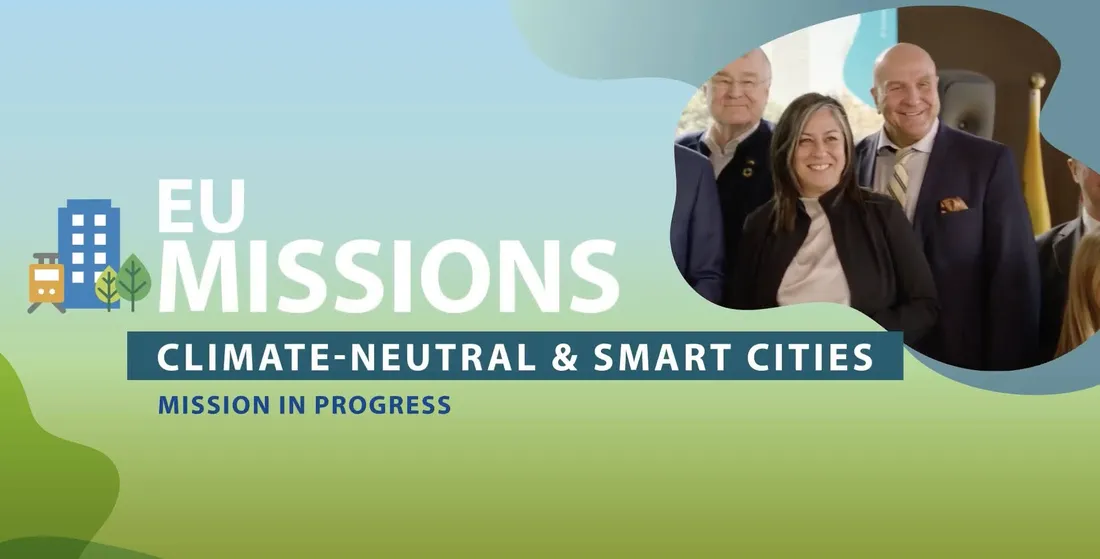
The EU Mission Label signifies the successful formulation of Climate City Contracts, outlining cities' comprehensive vision for achieving climate neutrality and encompassing an action plan along with an investment strategy.
Cities collaboratively draft their Climate City Contracts, involving local stakeholders such as the private sector and residents. In April 2023, the initial batch of cities unveiled their Contracts, which underwent evaluation by the Commission, with assistance from experts affiliated with the European Investment Bank (EIB) and the Joint Research Centre (JRC). After a favorable assessment, cities are granted the EU Mission Label, aimed at streamlining access to funding from the EU, national, and regional sources, especially private investments.
These ten cities are trailblazers, showing the way for others to accelerate their journey towards an equitable transition that is both environmentally friendly and digitally advanced. They serve as a model for the inclusive co-creation of policies at the grassroots level. In total, there are 100 participating cities in the EU Cities Mission, including an additional 12 cities from countries associated with Horizon Europe.
How is the European Commission helping the cities?
Together with the Mission Platform, currently managed by the project NetZeroCities, the Commission will continue supporting the effective implementation of the Climate City Contracts.
Cities that received the EU Mission Label can now use it as a sign of confidence in their climate neutrality plans, especially when approaching public and private funders. The Commission, through the Mission Platform, will continue to support cities with hands-on advice and funding programmes, such as a 32 million euros pilot programme combined with a twinning programme. Another call for pilot cities with a budget of 20 million euros is still open to submission until 6 November.
The Pilot Cities Programme
Only local authorities or city administrations selected to be part of EU Mission for climate-neutral and smart cities by 2030 (Mission Cities) are eligible to apply to, and receive funding under, this Call. For the avoidance of doubt, this call is addressed to designated Mission cities only (who are not yet part of the Pilot Cities Programme portfolio) and therefore these consortia may not include other city, district, or municipal authorities (i.e., ‘non-Mission’) or existing Pilot Cities.
A group of Mission Cities (national or trans-national) may apply together in a consortium, however, one of the Mission Cities will have to be designated as the consortium leader for all administrative and process-related purposes. The logic behind a joint application will need to be explained in the proposal. In the case of a group of cities applying together in one proposal, the size of the requested subgrant must follow the award amounts as stated in the Call Guidelines.
Other organizations could also participate as members of a consortium led by a Mission City. These organizations could be, for example: research institutions, universities, SMEs, NGOs, associations, citizen groups or other relevant stakeholders involved in the implementation of the climate ambitions of a Mission City participating in the consortium.
The total available budget under this call is between a minimum of 12 million and a maximum of 20 million Euros. The funding will be allocated across three subgrant envelopes as follows:
- 500.000 to 600.000 euro: proposals with a minimum of one city/district plus at least one additional consortium partner (NB: the additional consortium partner may be another eligible Mission city/district).
- 1.000.000 euro: proposals with a minimum of two cities/districts, plus any additional consortium partners.
- 1.500.000 euro: proposals with a minimum of three cities/districts plus any additional consortium partners.
Find more information in the Call Document.







